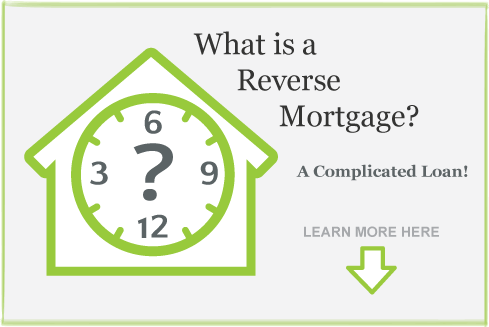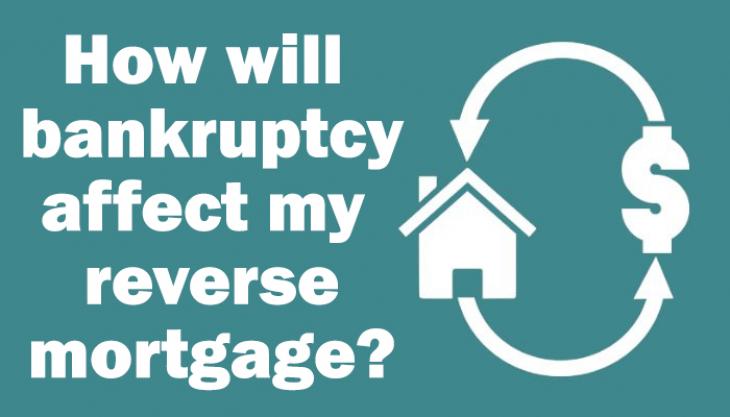A Guide to Help You Purchase Reverse Mortgage for Your Retirement Plan
A Guide to Help You Purchase Reverse Mortgage for Your Retirement Plan
Blog Article
Empower Your Retired Life: The Smart Method to Purchase a Reverse Home Loan
As retired life techniques, lots of individuals seek efficient approaches to improve their monetary freedom and well-being. Amongst these methods, a reverse mortgage emerges as a feasible option for property owners aged 62 and older, permitting them to tap right into their home equity without the need of month-to-month payments.
Understanding Reverse Home Mortgages
Comprehending reverse home mortgages can be vital for homeowners seeking financial adaptability in retired life. A reverse home mortgage is a monetary product that enables eligible property owners, commonly aged 62 and older, to transform a portion of their home equity into cash money. Unlike traditional home mortgages, where debtors make month-to-month payments to a lender, reverse home loans enable homeowners to receive payments or a round figure while maintaining ownership of their residential property.
The amount readily available with a reverse home mortgage depends upon a number of aspects, consisting of the house owner's age, the home's worth, and existing rate of interest. Significantly, the car loan does not have to be paid back until the homeowner sells the home, relocates out, or passes away.
It is important for prospective consumers to comprehend the ramifications of this monetary product, including the influence on estate inheritance, tax factors to consider, and ongoing responsibilities connected to residential or commercial property maintenance, tax obligations, and insurance. Additionally, counseling sessions with licensed specialists are typically needed to guarantee that consumers completely understand the conditions of the car loan. On the whole, a complete understanding of reverse mortgages can equip home owners to make enlightened decisions regarding their economic future in retirement.
Advantages of a Reverse Mortgage
A reverse home mortgage offers a number of engaging benefits for qualified property owners, specifically those in retirement. This financial device permits seniors to transform a section of their home equity right into money, giving important funds without the requirement for regular monthly mortgage repayments. The cash gotten can be used for different functions, such as covering clinical expenses, making home enhancements, or supplementing retirement revenue, thus enhancing general economic adaptability.
One significant advantage of a reverse home loan is that it does not need repayment until the property owner moves out, offers the home, or dies - purchase reverse mortgage. This feature allows retired people to preserve their way of life and satisfy unanticipated costs without the burden of monthly payments. Additionally, the funds received are generally tax-free, enabling house owners to utilize their money without worry of tax obligation effects
In addition, a reverse home mortgage can give tranquility of mind, recognizing that it can act as a monetary safeguard during challenging times. House owners additionally maintain ownership of their homes, ensuring they can proceed staying in a familiar setting. Inevitably, a reverse home loan can be a tactical financial resource, empowering senior citizens to handle their financial resources efficiently while appreciating their gold years.
The Application Process
Navigating the application procedure for a reverse mortgage is a vital action for property owners considering this monetary option. The initial stage entails evaluating eligibility, which generally requires the see post house owner to be a minimum of 62 years old, very own the building outright or have a low mortgage equilibrium, and occupy the home as their primary home.
Once eligibility is validated, homeowners have to go through a therapy session with a HUD-approved counselor. This session makes certain that they completely comprehend the implications of a reverse home loan, including the duties included. purchase reverse mortgage. After finishing counseling, applicants can proceed to collect necessary paperwork, consisting of proof of income, properties, and the home's value
The following action entails submitting an application to a lender, that will certainly evaluate the economic and home certifications. An appraisal of the home will additionally be conducted to determine its market worth. If authorized, the lending institution will provide financing terms, which ought to be evaluated meticulously.
Upon approval, the closing procedure follows, where final files are authorized, and funds are disbursed. Comprehending each phase of this application procedure can dramatically improve the house owner's confidence and decision-making concerning reverse home loans.

Trick Factors To Consider Prior To Getting
Investing in a reverse home mortgage is a significant economic choice that calls for cautious factor to consider of a number of crucial aspects. First, comprehending your eligibility is crucial. House owners need to be at least 62 years old, and the home must be their key home. Assessing your financial requirements and objectives is similarly important; establish whether a reverse home loan aligns with your long-lasting plans.

A reverse home loan can influence your qualification for specific government benefits, such as Medicaid. By thoroughly evaluating these considerations, you can make a much more educated decision about whether a reverse home mortgage is the ideal monetary strategy for your retired life.
Making the Many of Your Funds
When you have secured a reverse mortgage, effectively taking care of the funds comes to be a concern. The flexibility of a reverse home mortgage permits home owners to use the funds in different ways, yet calculated planning is important to maximize their advantages.
One essential approach is to develop a budget that details your regular monthly expenses and economic goals. By determining necessary expenditures such as healthcare, home tax obligations, and home upkeep, you can assign visit this page funds accordingly to make sure long-term sustainability. In addition, think about using a part of the funds for investments that can produce revenue or appreciate over time, such as shared funds or dividend-paying supplies.
One more crucial aspect is to keep an emergency fund. Reserving a reserve from your reverse imp source home loan can aid cover unexpected costs, offering satisfaction and economic stability. Moreover, speak with a monetary consultant to discover possible tax ramifications and just how to integrate reverse home mortgage funds into your overall retirement method.
Eventually, sensible management of reverse mortgage funds can enhance your monetary protection, permitting you to appreciate your retired life years without the stress and anxiety of financial uncertainty. Careful planning and informed decision-making will certainly guarantee that your funds work efficiently for you.
Final Thought
Finally, a reverse home loan provides a sensible economic approach for elders looking for to improve their retirement experience. By converting home equity into available funds, individuals can deal with vital costs and protected added funds without sustaining regular monthly repayments. However, careful consideration of the linked terms and effects is necessary to take full advantage of benefits. Ultimately, leveraging this economic tool can facilitate better self-reliance and improve general lifestyle throughout retirement years.
Comprehending reverse home loans can be critical for homeowners looking for financial adaptability in retirement. A reverse home mortgage is a financial item that permits eligible house owners, generally aged 62 and older, to transform a portion of their home equity into cash money. Unlike traditional home loans, where consumers make monthly repayments to a lender, reverse mortgages allow home owners to receive repayments or a lump amount while retaining ownership of their residential or commercial property.
On the whole, a comprehensive understanding of reverse home loans can equip house owners to make enlightened choices concerning their monetary future in retirement.
Consult with a financial advisor to explore possible tax effects and exactly how to incorporate reverse home loan funds into your general retirement strategy.
Report this page